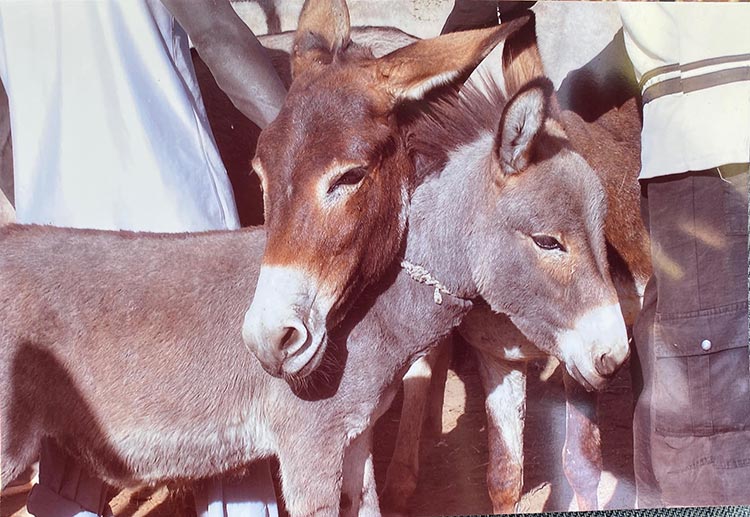Kenyan Officials Declare Ban on Donkey Slaughter

In the wake of international press coverage and local protests concerning the exportation of donkey skins from developing countries to China, Kenyan officials stated the “licenses to slaughter donkeys are … revoked immediately.” The Ministry announced the ban on Feb. 24, the same day the Association of Donkey Owners in Kenya led a protest march in Nairobi. The four donkey slaughterhouses in Kenya have 28 days to “transform their slaughterhouses” for processing strictly cows, sheep, and chickens, ministry officials said in a statement.
Welfare is not listed as a reason for the ban. The Ministry of Agriculture’s cabinet secretary, Peter Munya, cited primarily economic reasons for the new decree. His response to the protesters is posted on the Ministry’s website: “Slaughter of donkeys and trade in related donkey products has promoted vices like stealing of donkeys, (and the) wanton and unmitigated slaughter of donkeys, which ha led to drastic reduction in the donkey population. This has, consequently, impacted negatively on the economic welfare and the livelihoods of the families of those who rely on donkeys for transport and as a means of facilitating trade.”
Lacking the supply needed to meet demand for its production of a traditional medicine called ejiao, Chinese manufacturers have been importing donkey hides from across the globe, said Faith Burden, PhD, director of research and operational support at The Donkey Sanctuary, in the U.K. Currently, the industry requires nearly 5 million donkey hides a year, the primary ingredient for ejiao, which is purported to treat circulatory conditions, improve energy, and slow signs of aging
Create a free account with TheHorse.com to view this content.
TheHorse.com is home to thousands of free articles about horse health care. In order to access some of our exclusive free content, you must be signed into TheHorse.com.
Start your free account today!
Already have an account?
and continue reading.

Written by:
Christa Lesté-Lasserre, MA
Related Articles
Stay on top of the most recent Horse Health news with














